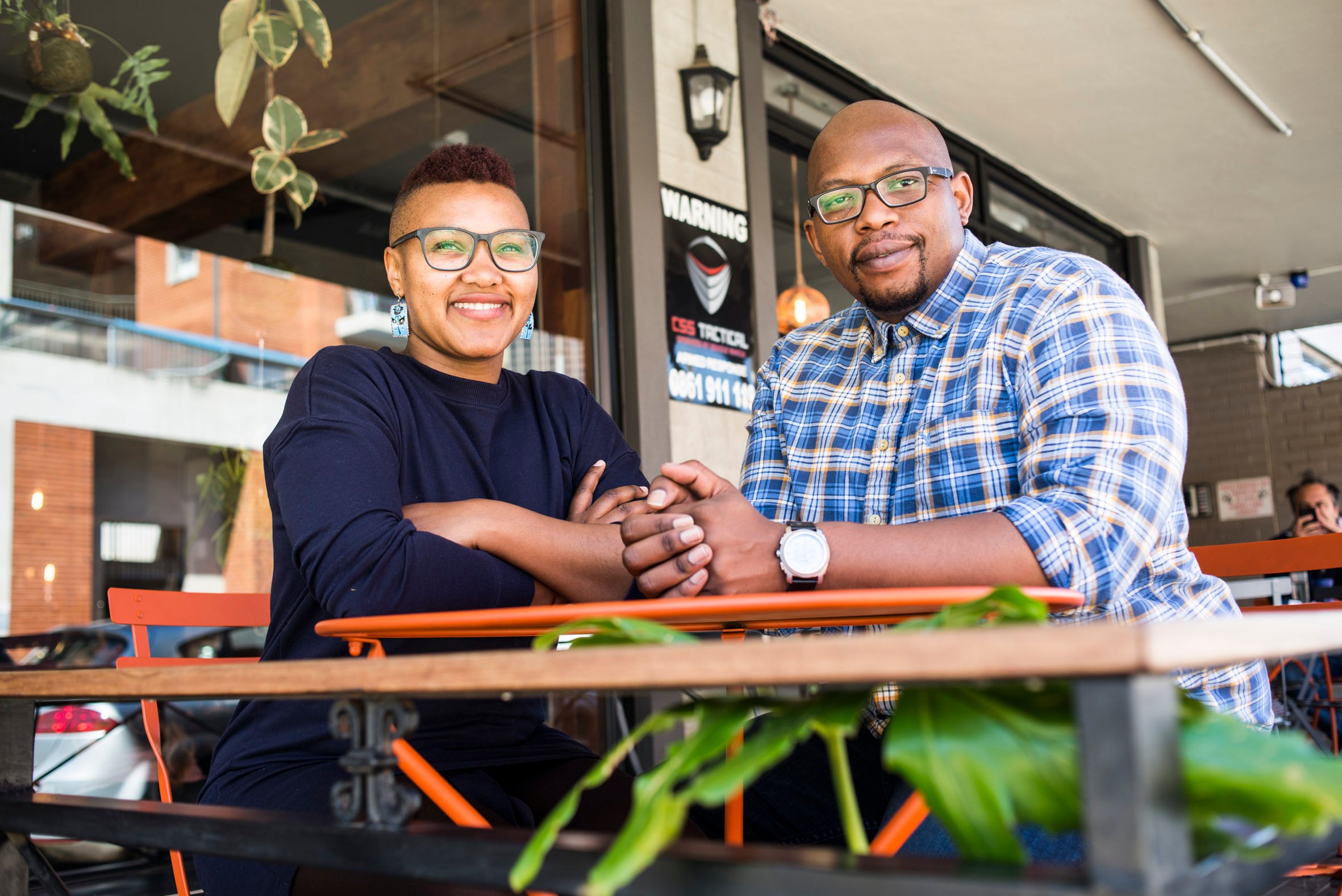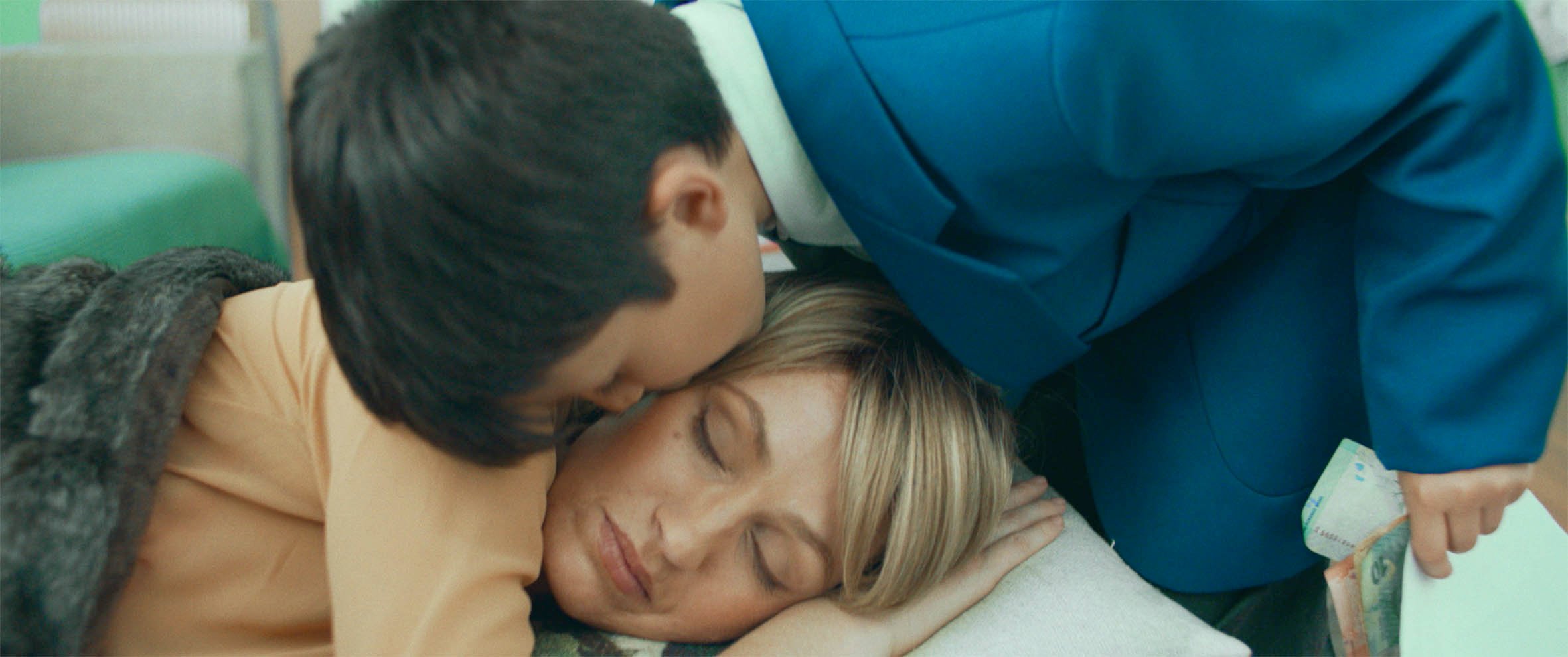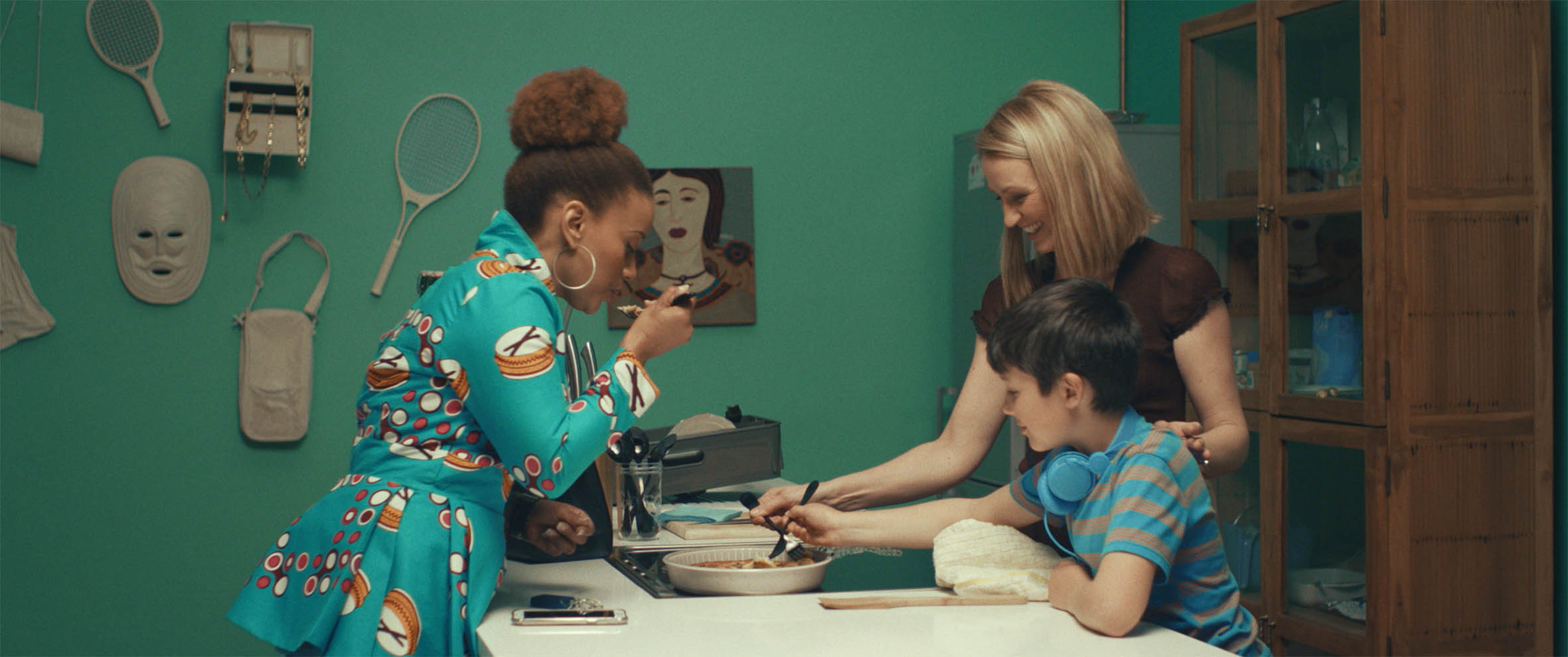Cooked-up: Table Manners is a local movie about love, loss, friendship and food. It features Diaan Lawrenson as Megan, Renate Stuurman as Lindiwe and Julian Robinson, her son
Table Manners, a food-themed movie opening in cinemas on September 28, straddles several genres. That’s exactly how its writer and director duo, Nkuli Sibeko and Leli Maki Esq, planned it.

[Writer and director duo Nkuli Sibeko and Leli Maki Esq]
For them, South African filmmakers are often coerced into making films that fit a cookie-cutter mould, as if audiences cannot meet a well thought-out product halfway.
“Everybody told us that the market wants to laugh. We were like, no, the market wants to feel,” says Sibeko, who runs Jack and Jill Productions with Maki.
The film’s genesis is a by-product of her seeking catharsis after a divorce. “So it was the loss of that love and having to start again and re-evaluate, like, ‘now that the context of my life has changed, who am I now? And how do I put that together?’”
As for the centrality of food in her relationship, Sibeko says: “Yes, I’m a feeder. And it’s interesting the different ways you cook, depending on how you feel … I have spoken to a lot of women about this who say the worse you feel, the harder you try with your outward appearance. And when you feel good, it’s so much easier to cook good food.”
In the film, Megan (Diaan Lawrenson) loses her home and husband Lloyd (Neels van Jaarsveld) because of his bad financial decisions. Megan and her son find solace in the company of her best friend, Lindiwe (Renate Stuurman). Egged on by her son Devan (Julian Robinson) and Lindiwe, Megan must pull herself out of the doldrums and rediscover her purpose through food.

Striking a balance in the script didn’t come easy for Sibeko. She says Maki played an invaluable role in funnelling its emotional downpour.
“So which parts were you involved in shaping?” I ask Maki. “The anger,” he says, laughing.
“In the first draft, the husband is not a good person,” says Sibeko. “So Leli was able to say, ‘That’s your perspective, but there is no such thing as an entirely bad person.’ ”
Sibeko says at times when she was coasting, Maki was also able to push for more emotive writing. “I had to dig deep for a lot of it, but he also allowed me to go, ‘This is a funny moment. Let it be fun, let it breathe’.”
Made on a budget of R8.2-million, with support from the Industrial Development Corporation, M-Net and the department of trade and industry’s emerging black filmmakers’ fund, Table Manners is sleek without being greasy. My initial curiosity was focused on the execution of the food shots, more specifically on how those interacted with the performances.
“Had we been shooting a straight cooking show, it would have been so easy to do it,” says Maki. “But when you have an intermingling of food and emotions and expressing emotions through food, then you have to serve two masters. Because there are the foodies out there, who know what good food looks like … and then you also have to serve the performance of the actor because she’s not just cooking.”

Maki says he and cinematographer Glauco Bermudez settled on a mode of operation “where we went deep on the macro shots, where you want to immerse the audience in the food, then we could pull out again for the performance, so we are not just focused on the food for both of them [the different shots]”.
The result is that Lawrenson can get on with the task of being Megan, who does most of the cooking, without being bogged down by continuity and cooking issues.
I ask Maki and Sibeko whether filming the movie, with all the complications that food can present, changed their relationship with the stuff of life?
“I hate food,”says Maki, with feigned weariness. “The biggest thing that mattered for us was the audience’s reaction to it. It’s like you are watching on the screen but how do you bring out the sounds? We had a final mixing session, where we built all the sounds from the ground up; all the soundscapes, all the sizzles, getting them right so they are not in your face. So it’s almost like you are tasting the food by hearing it and seeing it.”
Asked whether Table Manners will be distributed internationally, Maki says: “For us, it was, like, how do you make a successful film for a South African audience that resonates with what being a South African is? I don’t think you can be successful outside without being successful at home.”
Sibeko adds: “Our distributor is Filmfinity/ Ster-Kinekor. So the rights that M-Net have are for broadcast, but in terms of other ancillary rights they fall to us. After the agreed- upon time we can then sell to whichever channel we want to on the continent.”
The conversation veers toward a sentiment the two filmmakers share-that it is South African filmmakers who fail South African audiences by failing to capture the zeitgeist.
“If I’m making a meal for you,” says Sibeko, “I consider the flavours that you like. It doesn’t matter that I like eggs with plain Aromat; you might like scrambled eggs with dill; so why not then mix a little Aromat with the dill. It doesn’t make sense that I would make something that I like and then go, ‘Okay eat it’.”
Sibeko’s “eat it” is exaggerated, as if a bionic boogeyman is force-feeding “exclusionary” stories to the nation. But perhaps trying to sell the film on multiculturalism is a mistake, because then one goes into it looking for the evidence.
Lindiwe cuts a lonely figure. Supportive but lonely. She has no family, making her somewhat incomplete. But these can be the travails of city life. The other black characters are officials, “protectors”, prosecutors and professionals. This is not the downfall of the film but more an observation about how multiculturalism is a subjective matter.
A funny, bold film, unashamed of its primary goal to entertain, Table Manners poses inadvertent questions such as: What does it mean to be South African and can it be whittled down to a single, tangible thing?
Table Manners opens at Ster-Kinekor theatres on September 28.